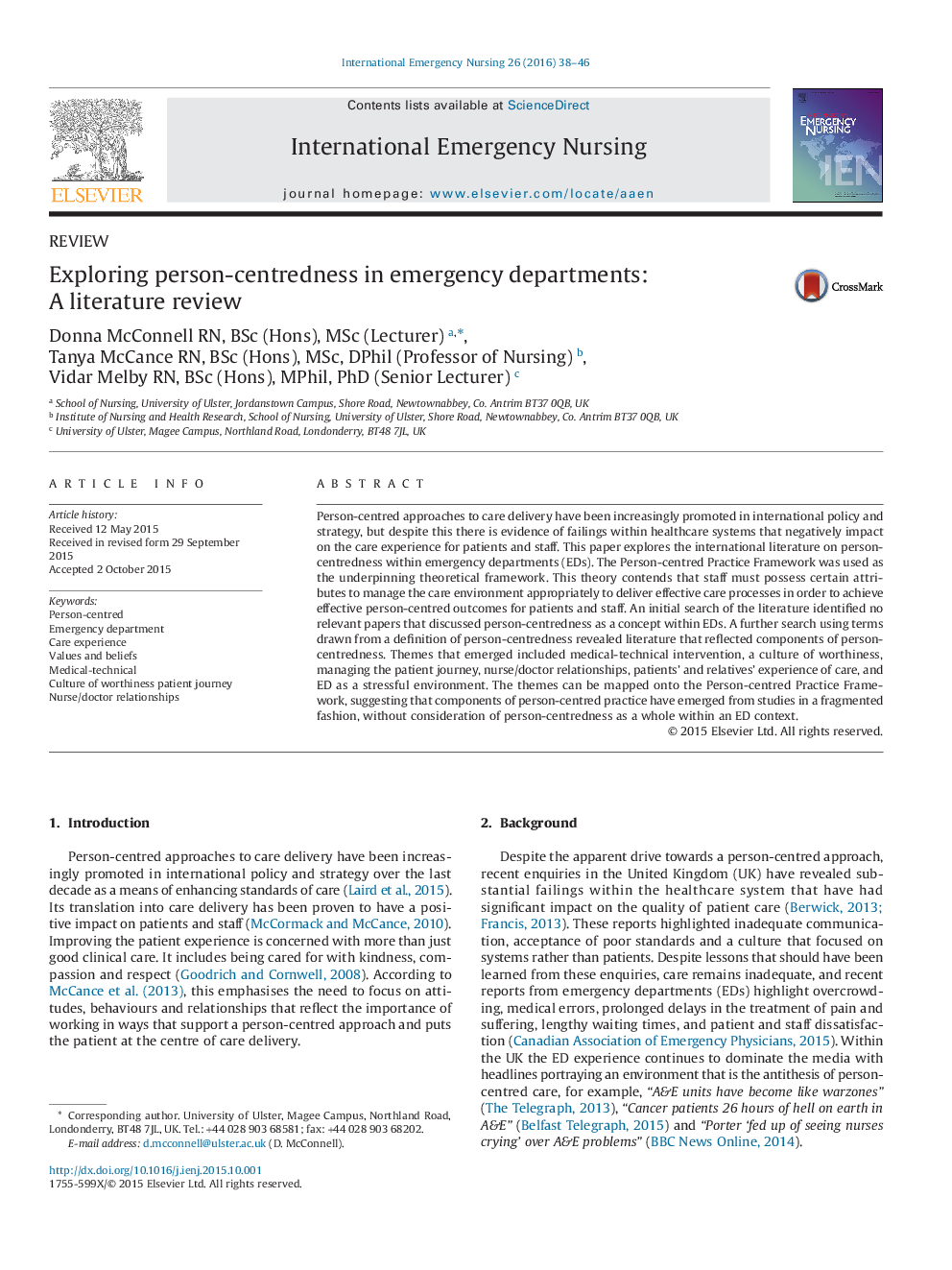| Article ID | Journal | Published Year | Pages | File Type |
|---|---|---|---|---|
| 2609188 | International Emergency Nursing | 2016 | 9 Pages |
•Person-centredness as a concept has not been explored in the ED literature.•Emergency nurses focus more on medical tasks than patient wellbeing.•The ED culture affects the readiness of the context to deliver person-centred care.•Nurses' ability to manage ED is impacted on by processes outside their control.•The care experience for many ED staff and patients' is negative.
Person-centred approaches to care delivery have been increasingly promoted in international policy and strategy, but despite this there is evidence of failings within healthcare systems that negatively impact on the care experience for patients and staff. This paper explores the international literature on person-centredness within emergency departments (EDs). The Person-centred Practice Framework was used as the underpinning theoretical framework. This theory contends that staff must possess certain attributes to manage the care environment appropriately to deliver effective care processes in order to achieve effective person-centred outcomes for patients and staff. An initial search of the literature identified no relevant papers that discussed person-centredness as a concept within EDs. A further search using terms drawn from a definition of person-centredness revealed literature that reflected components of person-centredness. Themes that emerged included medical-technical intervention, a culture of worthiness, managing the patient journey, nurse/doctor relationships, patients' and relatives' experience of care, and ED as a stressful environment. The themes can be mapped onto the Person-centred Practice Framework, suggesting that components of person-centred practice have emerged from studies in a fragmented fashion, without consideration of person-centredness as a whole within an ED context.
